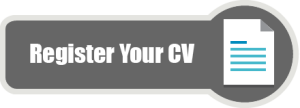5 Common Mistakes at a Job Interview
Here are the most common job interview mistakes, blunders, and errors a candidate can make. It’s easy to make these mistakes without even realizing it so take the time to prepare before your interview, so you don't have to stress out about blunders after it.
Being Late
First impressions are very important in landing a job so be careful not to make a bad first impression before you even arrive at your interview. Running late suggests poor time management skills and shows a lack of respect for the company, the position, and even your interviewer. Make sure that you aren't late and that you arrive on time, or even early. Manage your time so that you make it to the interview five to ten minutes early. That way, you'll have some time in your hands if something unforeseen comes up on your way over to your interview.
Not Doing Your Research About the Company
One of the easiest questions to ace is, "What do you know about this company?”, if only you do some research before your interview. Make sure to check the "About Us" section on company websites to learn background information including company history, locations, and even their mission statement. Review it ahead of time, then print it out and read it over just before your interview to refresh your memory. Also check the company's LinkedIn page, Facebook page, and other social media networks.
Zoning Out
Not paying attention during the interview is also a big no. Make sure you are well-rested, alert, and prepared. Getting distracted and missing a question looks bad on your part. If you zone out, your potential employer will wonder how you will be able to stay focused during a day on the job, if you can't even focus during one interview. Make an effort to stay engaged. Maintain eye contact, lean forward slightly when talking to your interviewer, and make an active effort to listen effectively.
Too Much Talking
Remember, your interviewer really doesn't need to know your whole life story as there is nothing much worse than interviewing someone who goes on and on. Keep your answers brief, to-the-point and focused and don't ramble—just simply answer the question. No matter how warm, welcoming, or genial your interviewer may be, an interview is a professional situation—not a personal one. Don't get sidetracked and start talking about your personal life.
Not Preparing for Common Interview Questions
Your interviewer is probably going to ask you more than just the basics about where you worked, and when. Prepare for your interview by reviewing questions to expect and how to answer them so you don’t get caught off guard. Be prepared with a list of questions to ask the employer so you're ready when asked if you have questions for them. Review worst interview answers that you should avoid at all costs.



